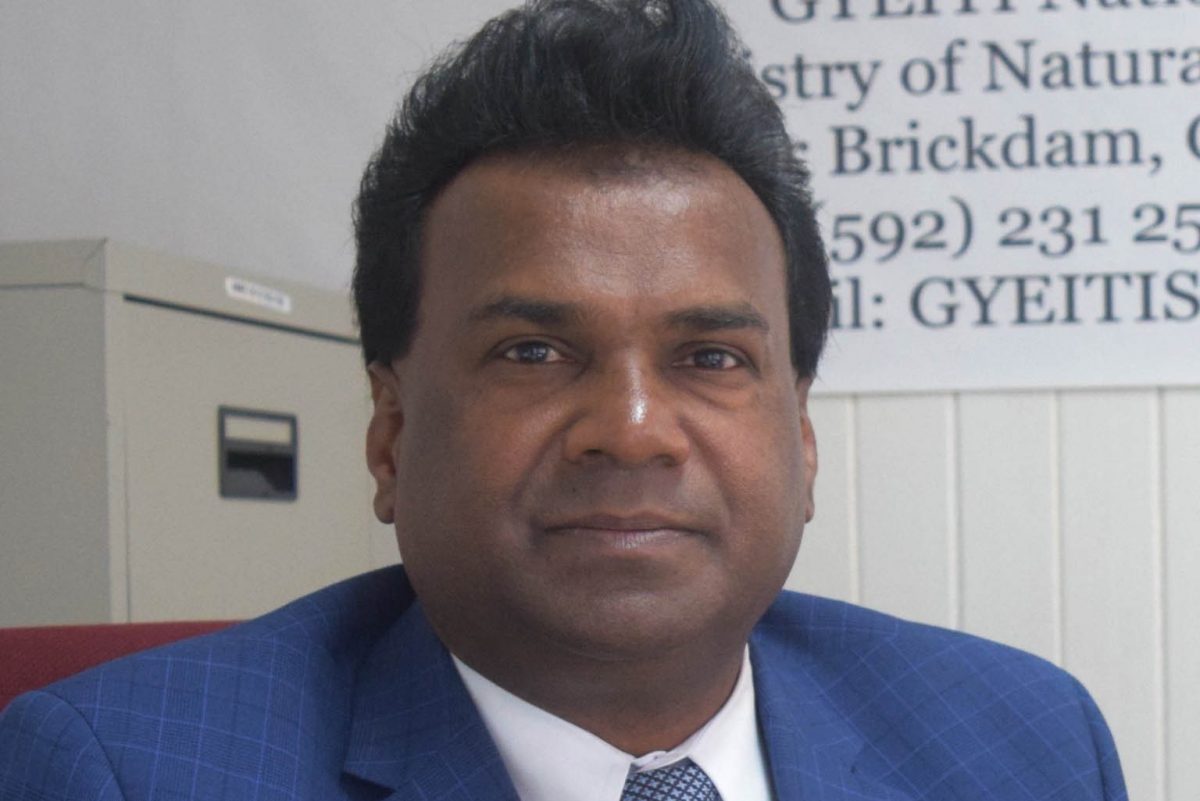Guyana could possibly face suspension from the global extractive industries transparency group (EITI) if the government doesn’t name its members to the Multi-Stakeholders Group (MSG), which manages the process.
It is unclear why the government has not complied with the simple requirement of naming its members even though it has been written to on the matter by the Norway-headquartered Extractive Industries Transparency Initiative (EITI).
The EITI is the international benchmark for transparency in the extractives sector and Guyana initiated the process of joining in 2010.

Minister of Natural Resources Vickram Bharrat has not been available to this newspaper to address this matter and a range of others.
As an implementing EITI country, Guyana is preparing for its 3rd EITI validation process, scheduled to begin on October 1st of this year but government is still to pick its four members to the MSG that oversees the implementation of the standards here.
Mike McCormack, a member of the GYEITI Interim Management Committee (IMC), told Sunday Stabroek that in order for the validation process to go smoothly, it is imperative that the MSG is formed by the time the process begins and if it isn’t this country could face a penalty from the global transparency standard body it has pledged to work with.
But GYEITI Head Dr Rudy Jadoopat says that all that mandated EITI deadlines have been shifted by International Board decisions due to the measures taken to curb the spread of the Covid-19 pandemic and that the “GYEITI is doing everything within its authority to meet all deadlines”.
“There is a process called validation, for the Guyana section, it is going to start October 1st and it is a process that is directed by the international secretariat,” McCormack explained.
He said that this country has received a letter from EITI that validation would begin on October 1st and that “there are some preparatory activities that take place from September 1st,” just days away.
“The significance is that internally, here, in order for that process to go smoothly, the MSG that manages the EITI is in the process of being renovated and each should be in place by the time that the validation process begins,” he said.
The government is required to commit to work with civil society and companies, and establish a multi-stakeholder group to oversee the implementation of the EITI. Here, the tripartite committee is made up of twelve members where government, industry and civil society each selects eight members but only four of the respective sets are on the MSG and the others function as alternates.
The Government constituency comprises the Ministry of Natural Resources, the Ministry of Finance, the Office of the Prime Minister and the Guyana Revenue Authority.
The Industry constituency is made up of representatives from Large Scale Mining, Guyana Shield Resources Inc., and Small & Medium Scale Mining, the Guyana Gold & Diamond Miners Association, the Forest Products Association and ExxonMobil Guyana Ltd.
The Civil Society constituency has Policy Forum Guyana and the Indigenous People Representative.
“The multi-stakeholder approach is central to the operation and philosophy of the EITI, and it is reflected in how the EITI is governed and implemented. In each implementing country, a multi-stakeholder group (MSG) comprised of representatives from government, companies and civil society is established to oversee EITI implementation,” EITI says.
“Although the mandate of the MSG varies across countries, the MSG is the main decision-making body responsible for setting objectives for EITI implementation linked to wider national priorities in the extractive sector, producing EITI Reports, and ensuring that the findings contribute to public debate and get turned into reforms. While the MSG has a mandate to determine the scope of the EITI in its country, the EITI Standard contains some minimum requirements including those related to the role, rights and responsibilities of the MSG. This includes the full, free, active and effective engagement by government, companies and civil society,” it adds.
A process
McCormack said that government is still to elect its four members and four alternates. “We had a process and the civic component is selected. The petroleum people have selected… the government … can do this very quickly but this has not been done. That committee [MSG] needs to be inaugurated so there is no complication when validation starts,” he said.
“Selecting the new committee has taken longer than expected. So the only thing we are waiting on now is the minister to inaugurate the committee,” he added.
He said that if there is no committee inaugurated by the Minister of Natural Resources, then “there is a possibility of temporary suspensions.”
The GYEITI IMC member said that he doesn’t know “if there can be other sanctions if it goes on.”
Jadoopat said that the body is meeting deadlines and he is “satisfied with the work of the GYEITI to date.”
“The Guyana EITI Report [for fiscal year] 2019 is scheduled for publication by 31st December, 2021. The Validation templates were completed and submitted to the EITI International Secretariat and these are currently under review. Validation, due to Covid-related measures, was rescheduled to commence 1st October, 2021 by the EITI International Board,” he told Sunday Stabroek.
In 2010, when current Vice President Bharrat Jagdeo was President, Guyana committed to implementing the EITI standard. It was former Prime Minister Samuel Hinds, at a meeting with EITI Regional Director Francisco Paris in Georgetown, who relayed government’s position and held discussions with local stakeholders to discuss implementation.
Countries which want to improve the way they manage their natural resources, according to the EITI website, can apply to become an implementing country. In order to achieve satisfactory progress on implementing the Standard, they need to meet requirements on transparency and accountability.
Guyana only became an EITI candidate country in 2017 with Jadoopat appointed as its National Coordinator. Since then it has published its two EITI Reports, covering fiscal years 2017 and 2018 in April.
And while the production of oil in Guyana kicked-off in December 2019, there has not yet been a report which includes coverage of this sector.
With oil and gas projected to be this country’s largest industry earner, open and accountable management of those resources and implementing standards from the EITI would improve its global transparency ratings.
The EITI Standard requires the disclosure of information along the extractive industry value chain from the point of extraction, to how revenues make their way through the government, and how they benefit the public. By doing so, the EITI seeks to strengthen public and corporate governance, promote understanding of natural resource management, and provide the data to inform reforms for greater transparency and accountability in the extractives sector. In each of the 55 implementing countries, the EITI is supported by a coalition of government, companies, and civil society.






